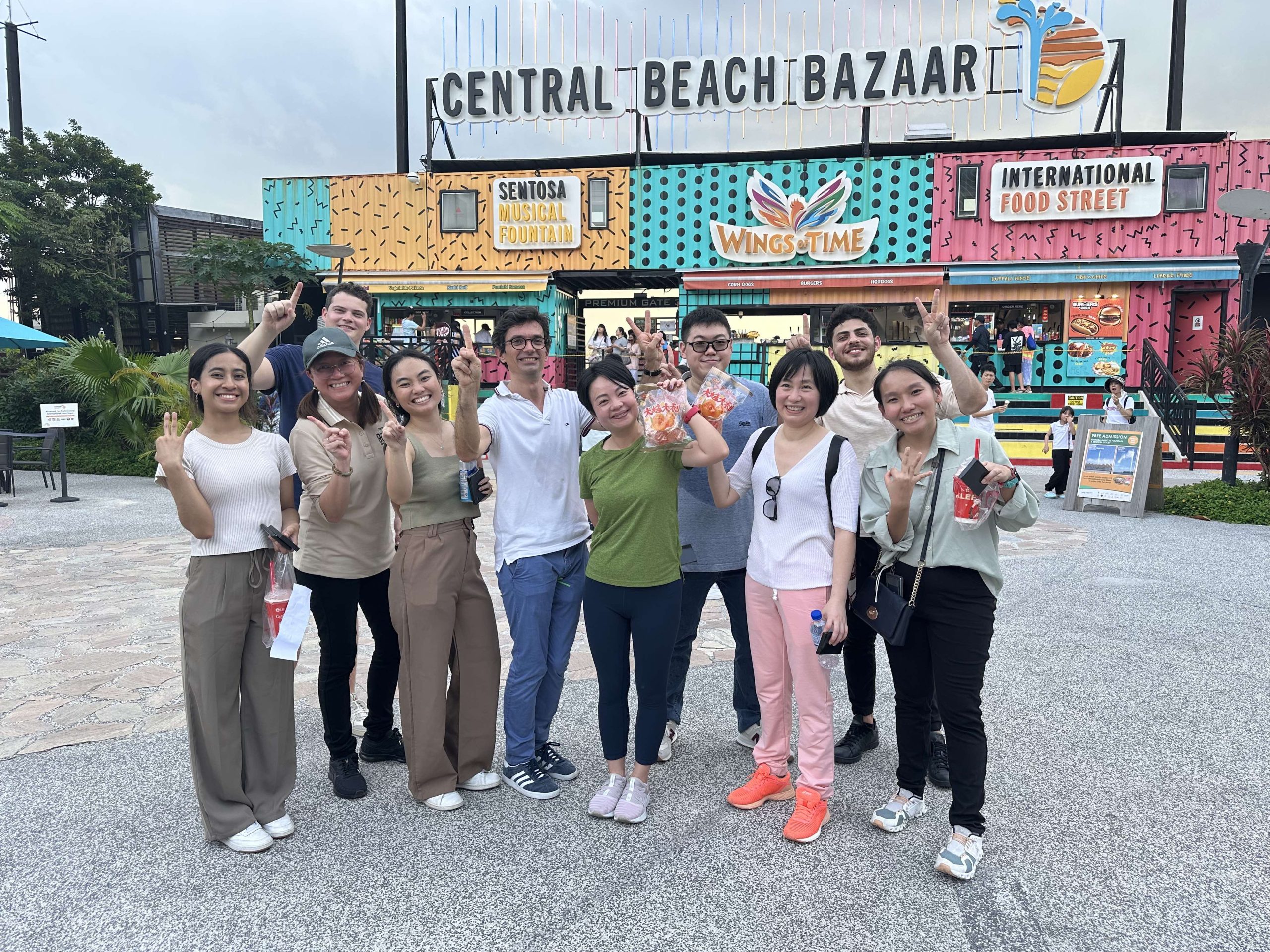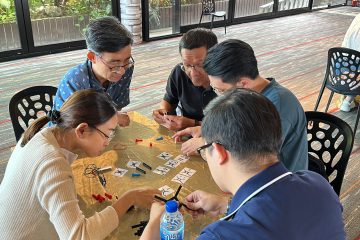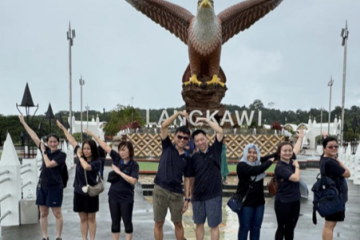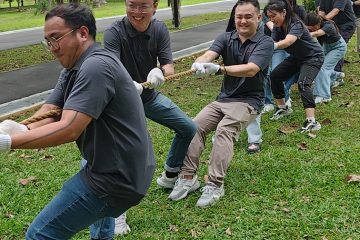How to Navigate Cultural Differences for Team Building in Singapore

In today’s globally connected business landscape, understanding cultural differences is essential for successful team building. In Singapore, a melting pot of ethnicities and languages, workplace culture is diverse yet complex. Many team building companies in singapore have recognized that leaders and HR professionals must navigate communication nuances, mutual respect, and cultural sensitivity to foster collaboration, innovation, and employee engagement. This article explores key cultural differences and offers strategies to overcome challenges for lasting inclusive growth.
What Are the Key Cultural Differences in Singapore’s Workplace?
Singapore’s workplace reflects a blend of ethnic groups, each with distinct values, traditions, and work ethics. Addressing these contrasts clarifies how cultural differences shape organizational dynamics.
Which Ethnic Groups Shape Singapore’s Workplace Culture?
Major ethnic groups in Singapore include Chinese, Malay, Indian, and Eurasian communities. The Chinese emphasize harmony and collective consensus, Malays value communal respect and religious traditions, Indians foster interpersonal warmth and family connections, and Eurasians blend Western and Eastern ideals. These differences influenceconflict resolution, decision-making, and leadership styles across organizations.
How Do Communication Styles Vary Among Singapore’s Major Ethnic Groups?
Communication in Singapore varies—some groups favor high-context, indirect approaches while others prefer clear, direct dialogue. The Chinese and Malays often avoid confrontation, using implicit cues to maintain harmony, whereas Indians usually appreciate open dialogue. Understanding these styles is vital for accurate feedback interpretation and effective collaboration.
What Common Cultural Misunderstandings Affect Team Dynamics?
Misunderstandings can arise when silence or indirect feedback is interpreted as disinterest. For example, a reserved Chinese team member’s response might be mistaken for disengagement rather than respect. Differences in attitudes toward hierarchy and formality may also spark friction, making clear expectations and open dialogue essential.
How Do Cultural Values Influence Team Behavior and Collaboration?
Cultural values affect punctuality, conflict resolution, and risk-taking. Employees from collective cultures may favor group consensus over individual innovation, while others prefer autonomy. Aligning team goals with mutual cultural respect helps build an environment that enhances collaboration, creativity, and productivity.
Top DE&I Practices for an Inclusive Singapore Workplace

Effective team building activities break down cultural barriers and celebrate the contributions of each group. Strategically designed initiatives can boost communication and create a shared sense of purpose.
What Types of Team-Building Activities Work Best for Multicultural Teams?
Multicultural teams thrive with a mix of structured and informal activities. Cross-departmental workshops, cultural potlucks, and problem-solving exercises encourage sharing of individual values and experiences. Outdoor challenges, brainstorming sessions, and role plays allow team members to experience diverse perspectives and build trust.
How Does Cross-Cultural Communication Training Improve Teamwork?
Training helps teams understand varied communication cues. Programs that focus on active listening and non-verbal techniques, tailored to Singapore’s multicultural environment, reduce misunderstandings and improve constructive feedback. As a result, teams build mutual respect and collective intelligence.
What Role Does Conflict Resolution Play in Diverse Team Building?
Conflict resolution is critical to address cultural differences. Without proper communication, conflicts may remain unresolved and reduce productivity. Workshops that emphasize empathy and structured resolution techniques, such as simulated role plays, help teams resolve conflicts efficiently and sustain long-term effectiveness.
How Can Trust and Collaboration Be Fostered Across Cultures?
Trust develops through continuous dialogue, shared experiences, and transparent practices. Mentorship programs, peer networking, regular feedback sessions, and collaborative goal-setting create safe spaces where diverse ideas flourish, reinforcing the notion that cultural diversity is an asset.
What Are Best Practices for Creating an Inclusive Workplace in Singapore?
An inclusive workplace values every employee regardless of cultural background. Best practices integrate diversity into company values through proactive strategies.
How Do DE&I Programs Enhance Team Building Success?
Diversity, Equity, and Inclusion (DE&I) programs address biases and promote cultural sensitivity. By establishing equitable policies, facilitating discussion groups, and celebrating diversity, companies attract top talent and boost engagement and performance.
What Are Effective Ways to Promote Cultural Sensitivity at Work?
Promoting cultural sensitivity requires commitment from leadership and continuous employee education. Training sessions, cultural simulations, and celebrating key cultural events help nurture understanding. Visual aids like infographics serve as constant reminders of the team’s diverse heritage, while leaders modeling inclusive behaviors set the tone for the organization.
How Can Organizations Measure the Impact of DE&I Initiatives?
Effectiveness is measured through employee satisfaction surveys, retention rates, and productivity metrics. Regular reviews and feedback help ensure that DE&I programs evolve in line with workforce needs, thereby improving team dynamics and reducing internal conflicts.
What Challenges Do Organizations Face When Building Teams in Singapore’s Diverse Environment?

Team building in Singapore’s diverse environment involves challenges such as language differences and cultural misinterpretations, which can hinder collaboration if not managed effectively.
How Do Language Differences Affect Team Communication?
Singapore’s multilingual setting can lead to miscommunication due to vocabulary nuances, accent differences, or dialects. These differences may delay information exchange and decision-making. Language support programs and translation tools can help ensure consistent communication across teams.
What Are Common Sources of Cultural Conflict in Teams?
Conflicts often stem from differing views on hierarchy, time management, and communication. For instance, strict adherence to punctuality by some may clash with more flexible approaches by others. An open culture of feedback and mutual learning is essential to address these conflicts.
How Can Leadership Navigate Cultural Complexities?
Effective leadership requires empathy and strategic insight to navigate cultural subtleties. Leaders who engage in cross-cultural training and solicit regular feedback can spot issues early and implement targeted interventions. Transparent communication and inclusive decision-making foster a collaborative environment.
How Have Successful Singaporean Companies Overcome Cultural Barriers in Team Building?
Leading Singaporean companies overcome cultural barriers by tailoring team building initiatives to embrace diversity. Their success offers valuable lessons for developing cohesive, high-performing teams.
What Lessons Can Be Learned From Effective Team-Building Initiatives?
Successful companies integrate cultural insights into training, maintain open communication channels, and host multicultural events. Regular intercultural workshops can reduce tensions and improve collective problem-solving by fostering mutual respect and continuous learning.
How Do Customized Workshops Improve Team Performance?
Workshops focused on intercultural communication and conflict resolution help teams understand different work styles. These sessions, often involving role plays and case studies, provide actionable strategies that lead to improved engagement and fewer misunderstandings.
What Metrics Demonstrate Improved Employee Engagement and Collaboration?
Improvements are seen in higher employee participation, increased satisfaction survey scores, and better retention rates. Monitoring project success and overall productivity further validates the positive impact of inclusive team building programs.
How Does Singapore’s Unique Cultural Landscape Influence Team Building Strategies?

Singapore’s melting pot of cultures directly influences team building strategies, affecting both interpersonal interactions and formal training programs.
What Are the Implications of Singapore’s Multilingual Environment?
A multilingual environment requires versatile communication tools. Training sessions should use clear language, visual aids, and translated materials to ensure consistent messaging. Cross-cultural platforms that enable real-time feedback further enhance collaboration among diverse teams.
How Do Local Laws and Workplace Norms Affect Team Dynamics?
Singapore’s strict labor laws and cultural standards of order and respect ensure fair practices but may also introduce formality that limits spontaneity. Balancing these norms with innovative team building fosters dynamic yet compliant practices.
How Can Organizations Leverage Singapore’s Cultural Diversity as a Strength?
By promoting diverse perspectives through mentorship programs, diverse project teams, and inclusive brainstorming sessions, organizations can drive innovation. Encouraging team members to share unique insights strengthens problem-solving and enhances overall competitive advantage.
What Resources and Tools Support Effective Team Building in Singapore’s Diverse Workplaces?
Specialized resources are essential to overcome cultural and operational challenges in team building. The right tools improve communication, foster collaboration, and enhance overall team performance.
Which Interactive Tools Help Assess Cultural Differences?
Online cultural competency quizzes and personality profiling software enable employers to gauge team dynamics. These tools identify potential challenges and provide recommendations to enhance collaboration by highlighting team strengths and areas for improvement.
What Role Do Visual Aids and Multimedia Play in Training?
Visual aids such as infographics, role-playing videos, and interactive webinars simplify complex cultural concepts. They translate abstract differences into concrete examples, thereby creating an engaging learning environment that reinforces key team building principles.
Where Can Organizations Find Expert DE&I and Team-Building Support?
Consulting firms specializing in DE&I and team building offer tailored workshops, coaching sessions, and online resource portals. Partnerships with universities, industry associations, and government initiatives also provide valuable models and insights to support a more inclusive workplace.
Final Thoughts
Singapore’s diverse cultural landscape offers significant challenges and opportunities in team building. By understanding key cultural differences, communicating clearly, and implementing tailored DE&I initiatives, organizations can create an environment where every employee feels valued. Successful companies use accessible tools and customized workshops to bridge cultural gaps, boost productivity, and build trust. Embracing diversity is a driving force for innovation and long-term success.
Frequently Asked Questions
Q: How can understanding cultural differences improve team building in Singapore? A: Recognizing cultural differences helps tailor communication, reduce conflicts, and foster an inclusive environment that enhances collaboration.
Q: What are some effective team building activities for multicultural teams? A: Activities such as intercultural workshops, group problem-solving exercises, and social events promote mutual understanding and trust.
Q: Why is cross-cultural communication training important? A: It helps employees interpret diverse communication cues accurately, which reduces misunderstandings and increases team cohesion.
Q: How can organizations measure the success of DE&I programs? A: Success is measured using employee satisfaction surveys, improved retention rates, productivity metrics, and feedback from team-building initiatives.
Q: What resources are available in Singapore for improving team building among diverse workforces? A: Expert consulting firms, online assessment tools, and multimedia training programs offer practical support for effective team building.
| Resource Type | Feature | Benefit | Example Use Case |
|---|---|---|---|
| Interactive Tools | Online cultural surveys | Identifies team diversity strengths | Assessing cultural competency levels pre-workshop |
| Multimedia Presentations | Videos and infographics | Enhances understanding of cultural issues | Training sessions on DE&I best practices |
| Expert Consulting | Tailored coaching and workshops | Provides customized strategies | Workshops designed for multicultural team integration |
Before implementing team building strategies, it is essential to evaluate your team’s unique cultural profile using these resources to drive effective, targeted action plans for enhanced employee engagement and organizational success.


